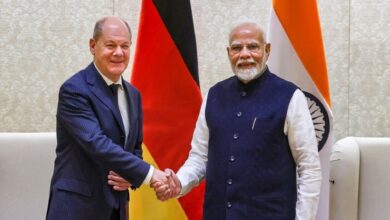After both New Delhi and Islamabad have clarified that External Affairs Minister S Jaishankar’s Pakistan visit next week will be restricted only to multilateral events of the Shanghai Cooperation Organisation’s Council of Heads of Government (CHG) summit, there seems little hope of this visit initiating any change in the long jam in India-Pakistan relations. But, in the midst of so many scheduled encounters between far too familiar leaders, officials, advisers, and media from both sides, it is impossible that both sides will not be gauging or conveying silent messages to each other. Given the high quotient of Jaishankar’s finesse and visibility during such multilateral events, speeches and comments, even body language, of the Indian delegation and their hosts are bound to ignite speculations about the post-visit shape of India-Pakistan ties.
The history of diplomacy is replete with examples when such formal assertions of ‘no talks’ are orchestrated to defuse the pressure of popular expectations to allow seasoned interlocutors to silently explore the ending of such prolonged mutually hurting stalemates. Nations often use backchannel parleys or pull-asides at multilateral forums, while this one involves a high-level visit! The last time India’s foreign minister was in Pakistan was in December 2015, when Sushma Swaraj visited to attend a multilateral ‘Heart of Asia’ security conference on Afghanistan and held talks with Pakistani leaders. What is interesting is that within days of her visit, Prime Minister Modi, on his way back from Kabul, had made a surprise Christmas Day stopover in Lahore.
The last ministerial visit to Pakistan, of course, was in December 2016, when then Home Minister Rajnath Singh attended the South Asian Association for Regional Cooperation (SAARC) ministers meeting. It was the 2019 Pulwama incident in February, followed by the reorganisation of Jammu and Kashmir in August, that Pakistan snapped their trade and travel links with India, expelled India’s High Commissioner, and recalled their High Commissioner. Since then, with all bravado from both sides, collectively the South Asian nations have not benefitted from the absence of SAARC summits since 2015. This has deeply impacted at least the spirit of all SAARC organs and agencies, including the functioning of its Secretariat in Nepal.
Jaishankar, however, claims that the last decade has witnessed great progress in regional integration. This implies India engaging with South Asian nations, barring Pakistan. But can India, as a rising power and inordinately largest nation in the region, afford to have SAARC stay dysfunctional forever? Can other regional organisations like the Bay of Bengal Initiative for Multi-Sectoral Technical and Economic Cooperation (BIMSTEC) or Bhutan, Bangladesh, India, and Nepal’s (BBIN) transport and energy grid or bilateral relations substitute SAARC? If anything, the weakening of SAARC will only dwarf the potential of all these other instruments of regionalisation. India’s new boost to bilateral relations is effective but can leapfrog using regional collectives as well. India’s last High Commissioner to Pakistan is on record to recommend countering terrorism requiring working with Pakistan. In any case, this will not be the first time that India could take the lead without taking credit for its outcomes.
In that spirit, India choosing not to miss or even downgrade its participation at SCO CHG must be seen as a positive signal that hopefully will not go missed by Islamabad. India is making no distinction between Pakistan and any other member nation of the SCO hosting this event. Remember for the SCO Commerce Ministers’ meeting on September 12, India was represented by the Commerce Secretary and not by a minister.
In that backdrop, the participation of our career diplomat turned politician and foreign minister, Jaishankar, cannot remain a non-event for Indo-Pak ties. To begin with, this has already left India’s distinction of attending SCO CHG but not the SAARC summit wanting an explanation. Absence of a convincing logic for this distinction can trigger speculations about whether India will also be attending the SCO Council of Heads of State (CHS) at the same level as before, ie, Prime Minister of India? All but one CHS since India became a SCO member has been attended by Prime Minister Modi.
While the SCO CHS is a long way to come, can this visit by Jaishankar break ice in India-Pakistan ties? Prima facie, both sides are keeping their options open. On multiple platforms, Jaishankar has clarified that his visit will not involve any ‘discussion’ on bilateral relations, leading Pakistan to echo the same sentiment but do so in an indirect fashion and at a much lower level of spokesperson. Jaishankar has likewise clarified how he sees India attending the SAARC summit in Islamabad will be ‘normalising’ Pakistan and legalising its use of terrorism as a ‘legitimate tool of statecraft’. But like SCO, SAARC summits also do not allow any ‘discussions’ on bilateral issues and will still have the same two member states where one uses terrorism against the other. As for not having bilateral ‘discussions’, a diplomat like Jaishankar knows far too well about the long history of non-verbal communications in diplomatic breakthroughs.
Indeed, the track record of India and Pakistan should reassure other SCO interlocutors who, in turn, could facilitate an early onset of Indo-Pak rapprochement. In 2015, when India and Pakistan were to join the SCO as members, there were serious concerns about their bilateral relations affecting the bonhomie of China, Russia, and the former Soviet Republics of Kazakhstan, Kyrgyzstan, Tajikistan, and Uzbekistan.
While Russia had supported India’s membership, China had supported Pakistan’s membership to ensure balance does not tilt in favour of Russia. Apart from India and Pakistan as members from 2017, inclusion of Iran in 2023 and Belarus this year has fuelled speculations about SCO’s anti-West credentials. Turkey remains another example of a nation that is willing to embrace SCO and give up its long-pending strive to join the European Union. But the conduct of India and Pakistan at various SCO forums has showcased their ability to separate their multilateral ambitions and their bilateral difficulties. Both have also withstood SCO being called the ‘Alliance of the East’ while both India and Pakistan have had excellent relations with western nations who are often critical of SCO deliberations, calling them names.
Especially for India, SCO’s focus on countering terrorism and energy security makes it most critical for India’s ambitions. Since 2001, Tashkent-based Regional Anti-Terrorist Structures (RATS) assists members in preparations and staging of counter-terrorism exercises, analysis, and intelligence about terrorism movements and drug trafficking. SCO also holds joint military exercises and provides India a potent platform to connect with resource-rich Central Asian Republics, which remain closely engaged by Russia and China. It is commonplace that SCO today is the world’s largest regional organisation, covering 80 per cent of Eurasia, 42 per cent of the world population, and 32 per cent of the world’s GDP in PPP terms. A large number of nations participate as dialogue partners and observers, with many more aspiring to join it. Second, it is also the most multilateral regional organisation with institutional relations with several other multilateral bodies like the UN General Assembly, ASEAN, Collective Security Treaty Organisation, Conference on Interaction and Confidence-Building Measures in Asia, etc.
India must remain awake to sharing SCO with China and Pakistan, which can catapult their bilateral tensions into India’s multilateral limitations. Last year, India had to hold the SCO CHS summit online even when several national leaders had agreed to join offline. Amongst others, the preceding SCO foreign ministers meeting in Goa had seen Pakistan foreign minister Bilawal Bhutto Zardari distracting the focus to India-Pakistan irritations, and, till last week to the summit, China had not confirmed President Xi joining the summit; these happenings might have contributed to such a decision.
The axiom that multilateral relations are built on the coalition of bilateral relations must guide India to focus on the bigger picture and guide Pakistan to respond to India’s subtle signs. India’s tryst with SCO in Islamabad has all the makings of becoming an inflection point for India-Pakistan ties.





